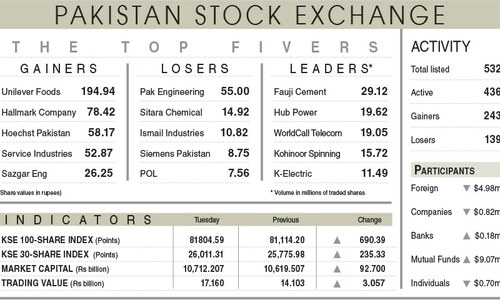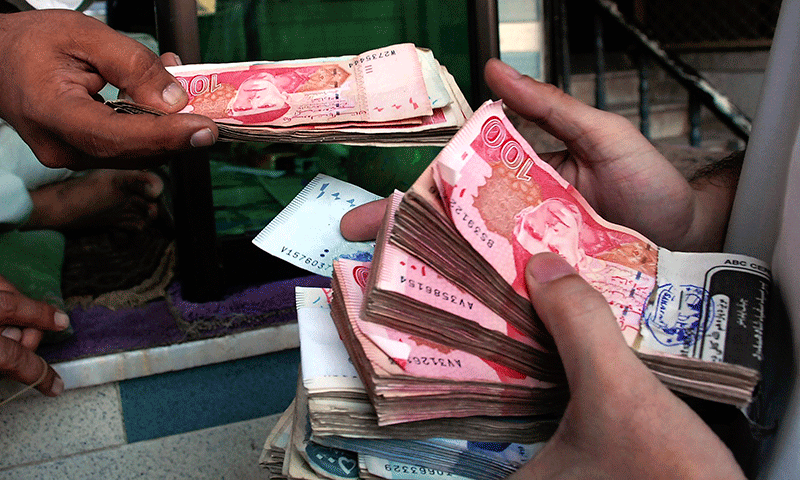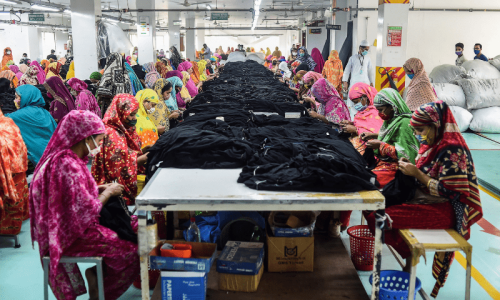KARACHI: Banks find themselves trapped in liquidity surplus these days, forcing them to start lending at throwaway rates as low as three per cent per annum to avoid paying tax on Advance-to-Deposit Ratio (ADR) applicable at the end of calendar year 2024.
Banking has completely changed in Pakistan as both the government and the banks are flush with liquidity. For years the government has been the largest borrower from banks, but it stopped borrowing recently and rejected all bids for short-term treasury bills.
At the same time, the government repurchased (buyback) Rs351 billion from the market at 16 per cent to save Rs11.5bn and reduce the burden on repayment of about Rs4 trillion maturity expected by December this year. Bankers explained that due to little borrowing from the government, the banks are surplus with cash and are willing to use the money as loans.
If the banks fail to meet the minimum requirement of ADR no less than 50 per cent, the government would impose a 15 per cent incremental tax on banks.
Lending at 3pc, against 17.5pc policy rate, to avoid tax on low ADR ratio
At the same time, many borrowers are taking cheaper money from banks, but they are also retiring their previous costlier loans. This means liquidity still remains with banks. Most of the banks are much below the 50 per cent ADR, meaning they need to extend loans on a large scale and avoid the 15 per cent tax.
According to bankers, some banks are trying to find a better option between 15 per cent tax and cheaper loans; whichever is better option would be adopted.
Banks failed to foresee the monetary growth taking place of late and that government policies are being run by a seasoned banker, Mohammad Aurangzeb, who is currently the minister of finance, said a banker.
“To meet the gross ADR requirement of at least 50 per cent by CY2024 end, (currently at 38 per cent) and avoid higher taxes, banks are putting efforts to secure relatively less riskier short-term loans,” said Samiuallah Tariq, head of research and development at Pak-Kuwat Investment Company.
“Till last week, lending to a short-term loan clocked in at KIBOR minus six per cent. The KIBOR (Karachi Inter Bank Offered Rate) was 16.2 per cent at that time, this brought the lending rate for those loans to 10 per cent,” he said.
Experts said banks had been lending at KIBOR minus rate. It means if KIBOR is 15 per cent and banks are lending at KIBOR minus 11 per cent, the actual lending rate is four per cent.
Tahir Abbas, head of research at Arif Habib, said the Trading Corporation of Pakistan (TCP) got Rs360bn financing from banks at KIBOR minus 11.9 per cent on Monday. Since the KIBOR was around 16 per cent on Monday, the TCP raised financing of Rs360bn at four per cent.
‘Good strategy’
Similarly, he added, the Pakistan Agricultural Storage and Services Corporation (Passco) borrowed Rs500bn last week at almost the same rate.
“The government adopted a good strategy as it will reduce its debt burden, increase longer tenure debts and reduce fiscal deficit significantly,” said Tahir Abbas, head of research at Arif Habib.
However, he feared, the current situation is not long-lasting since the government would have to come back for borrowing from banks.
He said the government has to pay a huge amount for debt servicing (all most all tax revenue goes for debt servicing), but this time it would decline.
“We can say banking has changed since banks are not lending to the private sector and the sole borrower is the government. For the time being it has changed and will produce good results for both the government and the economy,” he said.
For the last two years private sector borrowing was almost zero while trade and industry found the policy interest rate (now 17.5 per cent) not feasible for business. Now cheaper money can boost economic activities in the country.
Published in Dawn, October 2nd, 2024















































Dear visitor, the comments section is undergoing an overhaul and will return soon.